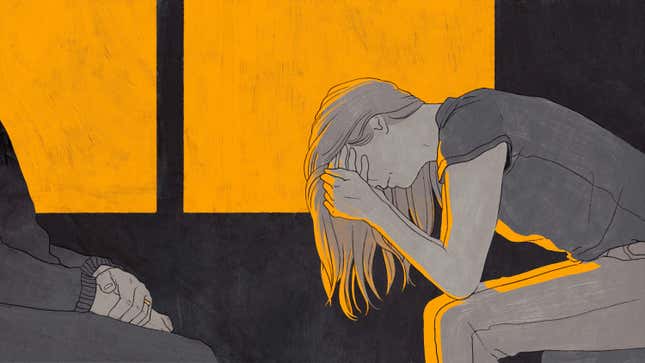
Illustration: Angelica Alzona/GMG
Dear Fuck-Up,
About a year ago my dad died of suicide. Like many men who’ve gone the same way, he was a famously charismatic, kind, funny, and deeply smart person. We were extremely close.
In the year before he died, he hurt my mum and our family, admitting to having been seeing someone else for a number of years. Not long after he moved out of the family home, he lost his job. After that, I was one of three people (that I know of) who he was confiding in and seeing regularly. Neither of my siblings was in contact with him.
I don’t want to go into much more detail about the year leading up to his passing, but I’ll just say it wasn’t easy. He was not himself, and we often fought (mostly about me wanting him to see a counselor and him refusing, or me not seeing things from his perspective when it came to the family issues).
For the past two years, I’ve lived in the fantasy that I “did everything I could” and “was there for him,” mostly because that’s what people like to say to me, and because it makes the world a little more bearable. But it’s not the truth.
Maybe three months before he died, my dad asked me if I thought he should contact my mum and sisters. He said he still loved my mum and he wanted to make things right. I said he should leave her alone and work on himself. He asked me if I thought she’d ever take him back, and I said no.
A year or so later, my mum told me that she’d spent that same time waiting to hear from him and that she’d never been able to understand why he didn’t reach out to her, especially if he was suffering. During that same conversation, she told me that he was the love of her life and she would have taken him back at any moment.
I haven’t told her or anyone else about the conversation with my dad, not just because I’m ashamed (though ashamed doesn’t even begin to cover it) but also because I don’t want to hurt or traumatize anybody and make this any harder than it’s already been.
-

-

-

-

-

-

-

-

-

-

-

-

-

-

-

-

-

-

-

-

-

-

-

-

-

-

-

-

-

-

-

-

-

-

-

-

-

-

-

-








































